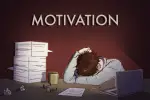What qualifies as a sick day? Employees generally get a few paid sick days a year so they can stay home and rest with a bowl of soup and a box of tissues instead of infecting half the office with the flu. In college, there usually are no limits to how many sick days you can take; students can just skip class if they’re feeling under the weather.
Of course, when attendance constitutes 20 percent of their final grade, most students will suffer through an hour of class and then slink back to their beds. But is a sick day only reserved for illnesses? What about a day for your mental health?
Maybe it’s not as visible as one’s physical health, but mental health or lack thereof still affects how we think, feel and act. Sleep deprivation, anxiety, stress, depression — any of these problems can hinder one’s performance in work or school, and they tend to get worse if one ignores them.
So, if you are not in the right headspace for work or school, shouldn’t you be able to take a sick day to feel better? Is it okay to take a mental health day?
On one hand, you could argue that it’s not the school’s problem if you’re stressed out or sleep-deprived. After all, poor mental health isn’t contagious; even if you go to work or class, your stress won’t infect the people surrounding you. In addition, it’s all too easy to say that mental health issues aren’t “real” issues when there are no physical signs to prove it.
When you have the flu, nobody can accuse you of faking it; obviously, you’re dripping snot from your nostrils, coughing up a lung and maybe even running a high fever. Nobody could call you weak for staying home to recuperate (and to keep those germs away from them, of course). But at the same time, nobody can see the struggle of one’s mental health.
There are no obvious physical symptoms for a problem like anxiety or depression. Even if someone notices that you’re nervous or scatterbrained or falling asleep at your desk, all too often they can dismiss those symptoms and say that you’re just lazy or irrational.
Unfortunately, poor mental health can do much more damage to a person than you would think. In addition, it’s often beyond one’s control, just like physical sickness; no matter what your professors or coworkers might say, you can’t make someone’s issues disappear by telling them to get over it.
Poor mental health doesn’t go away when you try to ignore it; in fact, it often only gets worse. And sometimes, one needs a day to sleep in or just relax to recharge one’s mental health and stave off insanity.
Colleges often push students to a level of stress that forces them to rearrange their priorities. Grades become more important than what they are actually learning. The twelve projects all due on the same day take precedence over sleeping and eating.
Above all, students are taught to care more about assignments and classes than about mental health. So they pump themselves full of energy drinks and coffee and pull all-nighters every other night. After all, sleep is for the weak and there is too much work to be done.
The stress of trying to pass all your classes, maintain a social life and get eight hours of sleep puts an immense load on anyone. All the stress can take its toll on the young mind, or even on an older person in the work force. However, with the stigma behind mental health or lack thereof, it’s not always easy to get the relief you need.
There are days when all the stress of work and school can overwhelm even the most dedicated among us. The exhaustion of work and school just takes hold and refuses to let up. The thought of getting out of bed becomes difficult. On days like that, maybe you just need some time to ignore the responsibilities plaguing your life.
It is absolutely okay to take a mental health day in order to collect yourself to help function normally with stress and anxiety. However, do not abuse the mental health day. You should only use them if you absolutely need them. If you take every other day off, you’ll only end up with a boatload of unfinished assignments piling up behind you, and that would only cause more stress.
As someone who struggles with stress management and has a strange relationship with caffeinated beverages at two o’clock in the morning, I can testify: having a mental health day can really work wonders. Staying up all night and stressing about all your homework actually isn’t the most productive way to get work done.
When you’re stressed and sleep-deprived, this work often won’t meet the same quality as it does when you get enough sleep. So, it might help to concentrate on yourself for a day. You can destress, refocus your brain and prepare yourself to dive back into the daily grind tomorrow. Calling in sick to work or skipping a day’s worth of class can help manage the stress and anxiety that is consuming your life.
According to Shannon Byrne, a clinical psychologist at Duke University Health System, “taking a mental health day can improve energy, motivation, mood, and one’s ability to manage stress, and time off might actually increase overall productivity rather than decrease it.” Many psychologists recommend an occasional day off in order to recharge and relax the brain.
Doing meditation or yoga, or working on activities you love or even just catching up on much-needed sleep all work wonders for your mental health. You could argue that you’re wasting valuable time, but recharging your mental batteries can help you be more productive in a stressful environment. In the long run, you’re not wasting time; you’re actually being more efficient.
So next time you find yourself awake at 3:30 in the morning with two unfinished assignments and three empty Starbucks cups, just remember that mental health days exist for a reason. Also, remember that no matter the work load or the stress your GPA puts on you, there is more to life than these small moments of homework and deadlines.
One missed assignment or a submission one day late will not end the world. Your mental health is more important than a single assignment. Remember that, no matter what your coworkers or classmates might say, you can’t actually sleep when you’re dead. One day off will not hurt, but three all-nighters in a row definitely will.
















